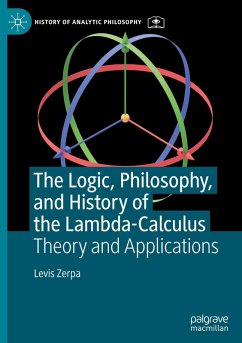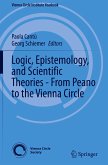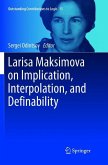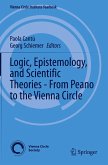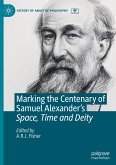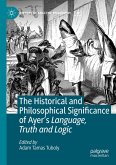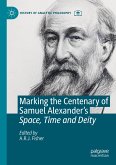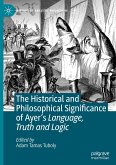This is the first book focused on the logico-philosophical aspects of the lambda-calculus since the inception of the field in 1932 in the pioneering work of Alonzo Church. The book starts a new field called "lambda-philosophy": a branch of logic-based analytic philosophy in the tradition of Frege and Russell, directly constructed from the lambda-calculus. Another innovation of the book is a new graphical and intuitive logico-mathematical notation for the lambda-calculus called "the container notation".
The book covers in detail some episodes of the history of the subject, including three comparative studies of the lambda-calculus with Viète's algebra, Descartes' analytic geometry, and Wittgenstein's Tractatus. A didactic approach to the logico-mathematical aspects of the lambda-calculus, partially based on cognitive science, provides the technical basis for the analysis. In this way, the book provides a systematic and coherent treatment of diverse logico-philosophical aspects and applications of the lambda-calculus as part of the platform offered by lambda-philosophy.
The book includes the following: a detailed treatment of the ambiguities of the concept of function (under the traditional or Euler's notation); an elucidation of the notion of transformative philosophical analysis; an account of Church's methodology which shows that the lambda-calculus is an adequate solution to the problem of a philosophical analysis of functions as rules of computation; a didactic treatment of the formal aspects of the lambda-calculus through the container notation; and diverse arithmetical and logical examples of the container notation. The book questions a dogma of algorithmic thinking by arguing that the lambda-calculus is more intuitive and natural than Turing machines.
The Logic, Philosophy, and History of the Lambda-Calculus is essential reading for all scholars and researchers of the history of analytic philosophy and especially those focussing on logic-based analytic philosophy.
The book covers in detail some episodes of the history of the subject, including three comparative studies of the lambda-calculus with Viète's algebra, Descartes' analytic geometry, and Wittgenstein's Tractatus. A didactic approach to the logico-mathematical aspects of the lambda-calculus, partially based on cognitive science, provides the technical basis for the analysis. In this way, the book provides a systematic and coherent treatment of diverse logico-philosophical aspects and applications of the lambda-calculus as part of the platform offered by lambda-philosophy.
The book includes the following: a detailed treatment of the ambiguities of the concept of function (under the traditional or Euler's notation); an elucidation of the notion of transformative philosophical analysis; an account of Church's methodology which shows that the lambda-calculus is an adequate solution to the problem of a philosophical analysis of functions as rules of computation; a didactic treatment of the formal aspects of the lambda-calculus through the container notation; and diverse arithmetical and logical examples of the container notation. The book questions a dogma of algorithmic thinking by arguing that the lambda-calculus is more intuitive and natural than Turing machines.
The Logic, Philosophy, and History of the Lambda-Calculus is essential reading for all scholars and researchers of the history of analytic philosophy and especially those focussing on logic-based analytic philosophy.

